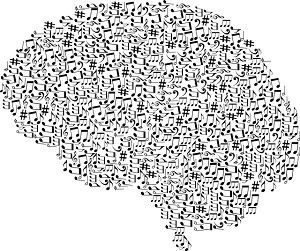3 Brain Benefits of Playing a Musical Instrument
Did you know when you play a musical instrument, you benefit your brain? Here’re three brain benefits of playing music that you must know about.

If you’re still debating whether you should get enrolled in online group classes to learn to play a musical instrument of your choice, you need to set aside your doubts and start right away. That’s because playing music gives your brain a good workout. Just like a full-body workout brings multiple benefits to your overall health, playing musical instruments lights up multiple areas of your brain. By using fMRI and PET scanners to monitor how the human brain works when playing music, neuroscientists observed how different areas of the brain light up as they process different information simultaneously in interconnected, intricate, and amazingly rapid sequences.
When you play a musical instrument, here are three ways that benefit your brain:
1. It facilitates a good brain workout
When you play a musical instrument, almost every area of your brain gets involved right away, particularly the auditory, visual, and motor cortices. Similar to a full-body workout, the well-planned and disciplined practice of playing a musical instrument fortifies these brain functions, thus letting you apply that strength to activities in other domains too, which could be social, academics, etc.
2. It involves both the left and right hemispheres of your brain
When playing a musical instrument, both your brain’s left hemisphere (that excels in mathematical and linguistic precision) and right hemisphere (known to be more involved with creativity) get involved. Since the corpus callosum connects both these hemispheres, playing music augments the activity and volume in the corpus callosum, thus making you strong – both logically and creativity-wise. Additionally, you’ll need fine motor skills to play an instrument, which gets controlled by both hemispheres of your brain. All these make it easy for you to solve problems more effectively – in both musical and non-musical settings.
3. It facilitates enhanced memory functions
Playing musical instruments helps you to develop higher levels of executive function, which refers to a set of interconnected tasks including planning, strategizing, and giving attention to detail. Such tasks need concurrent analysis of both emotional and cognitive facets. Playing music also makes your brain allot each of your memories multiple tags, like an emotional tag, a conceptual tag, an audio tag, etc., which has a significant effect on how your memory works. No wonder musicians have been found to exhibit enhanced memory functions by forming, storing, and retrieving memories more efficiently and speedily.
If you’ve been looking for online platforms where expert instructors teach you how to play musical instruments, join one like Mousiki today to enjoy the journey while doing your brain a big favor as well.
